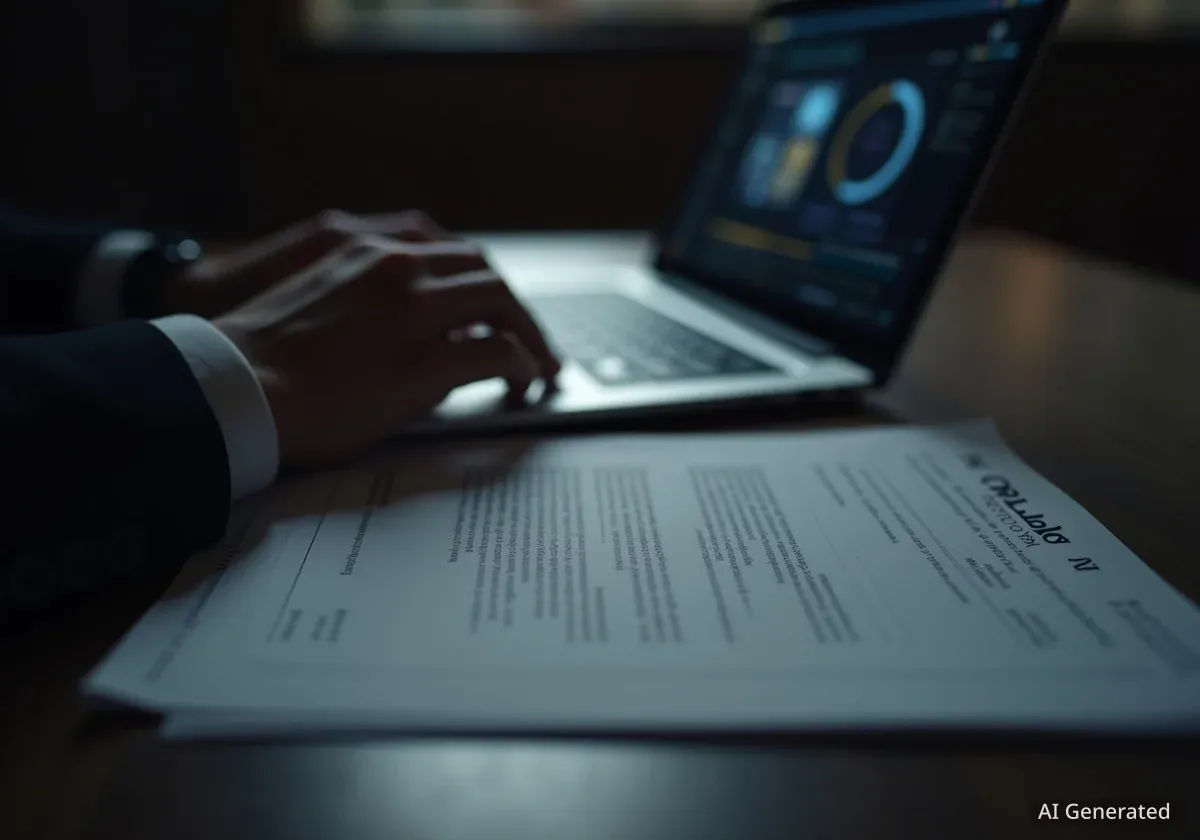A Palo Alto attorney with nearly five decades of legal experience has acknowledged submitting a court filing that included references to non-existent legal cases. The lawyer, Jack Russo, informed an Oakland federal judge that the fabricated citations were the result of using an artificial intelligence tool, which produced what are commonly known as AI "hallucinations."
The incident is part of a growing number of cases across the country where legal professionals have faced serious professional consequences for relying on unchecked information from generative AI platforms. This situation highlights the significant risks and ethical challenges emerging as AI technology becomes more integrated into the legal field.
Key Takeaways
- A veteran Palo Alto lawyer, Jack Russo, admitted to citing fake legal cases in a federal court document.
- The fabricated citations were generated by an artificial intelligence tool, a phenomenon known as "hallucination."
- In a court filing, Russo expressed embarrassment over the incident, calling it a "first-time situation."
- This case is one of several recent examples where lawyers have been sanctioned for improperly using AI in their work.
Details of the Court Filing Incident
The issue came to light in a federal court in Oakland, where Jack Russo, a lawyer with a career spanning almost 50 years, was representing a client. During the proceedings, it was discovered that multiple legal precedents cited in a crucial filing were not real. The case names and their associated details appeared plausible but could not be found in any legal database.
In a subsequent declaration to the court, Russo took responsibility for the error. He explained that the use of an AI chatbot for research led to the inclusion of the fictional cases. According to his filing, he stated, "I am quite embarrassed," and described the event as an unprecedented mistake in his long career.
This admission underscores a critical vulnerability for professionals who use AI without a rigorous verification process. The technology, while powerful, does not possess true understanding or a factual database of legal records, leading it to invent information that appears authentic.
What Are AI Hallucinations?
AI "hallucination" is a term used to describe instances when a large language model (LLM) like ChatGPT generates false, nonsensical, or factually inaccurate information but presents it as if it were correct. This happens because these models are designed to predict the next most likely word in a sequence to create human-like text, not to access and relay verified facts. They can confidently invent details, sources, and in this case, entire legal precedents.
A Pattern of AI Misuse in the Legal Field
The incident involving Jack Russo is not an isolated one. It reflects a concerning trend that has emerged as generative AI tools have become widely accessible. Legal professionals, often working under tight deadlines, have turned to these platforms for research assistance, sometimes with disastrous results.
One of the most widely reported cases occurred in New York, where two lawyers were fined $5,000 each for submitting a legal brief filled with fake case citations created by ChatGPT. In that case, the judge noted that the attorneys continued to stand by the fake cases even after their authenticity was questioned by the court.
"There is a growing body of case law and professional ethics opinions that make it clear: lawyers are responsible for the accuracy of their filings, regardless of what tool they use to create them," said one legal technology expert.
The Ethical and Professional Risks
The American Bar Association and state-level legal ethics committees have begun issuing guidance on the use of AI. The core principles remain unchanged: lawyers have a duty of competence and a duty to be truthful to the court. Relying on an unverified AI output can violate both of these fundamental obligations.
Potential consequences for such errors include:
- Monetary sanctions: Fines imposed by the court for filing frivolous or factually unsupported documents.
- Professional discipline: Actions from state bar associations that could range from a reprimand to suspension of a law license.
- Reputational damage: Public embarrassment and loss of trust from clients and peers within the legal community.
- Malpractice claims: Clients whose cases are harmed by the submission of faulty legal work may sue their attorneys for negligence.
The Challenge of Integrating AI Responsibly
Despite the risks, many experts believe that AI has the potential to revolutionize the legal industry by automating tedious tasks, speeding up research, and making legal services more affordable. The key challenge lies in developing best practices and implementing strict oversight to prevent errors like the one in the Russo case.
AI in Law: Statistics and Trends
A recent survey of legal professionals found that while over 50% are experimenting with generative AI tools for tasks like drafting emails or summarizing documents, less than 10% have formal policies or training programs in place for their use. This gap between adoption and governance is a major source of risk.
Legal technology companies are working on developing specialized AI tools for the legal sector that are built on closed databases of verified case law. Unlike general-purpose chatbots, these systems are designed to provide accurate, verifiable citations. However, these tools are often more expensive and less widely known than consumer-grade platforms like ChatGPT.
Moving Forward: Verification is Key
The consensus among legal ethics experts is that AI can be a useful assistant, but it cannot be a substitute for professional judgment and diligence. Every piece of information generated by an AI, especially a legal citation, must be independently verified using traditional, reliable sources.
As law firms and legal departments continue to explore the capabilities of artificial intelligence, the lessons from these early missteps are clear. The responsibility for the final work product always rests with the human professional. The convenience offered by AI must be balanced with an unwavering commitment to factual accuracy and ethical conduct. For Jack Russo and others who have been publicly shamed, this lesson has been a difficult and embarrassing one.





